SIAS cohosts conference “Shanghai Commemorates the 50th Anniversary of Ping Pong Diplomacy”
Posted:2021-05-25
On April 30, 2021, the conference “Looking Back and Forward: Challenges and Opportunities of China-US Relations”, sponsored by SIAS, Shanghai People’s Association for Friendship with Foreign Countries, Shanghai Sports Federation, Shanghai University of Sport and other institutions, was held in International Table Tennis Federation Museum and China Table Tennis Museum. It was part of a series of events held in Shanghai commemorating the 50th anniversary of Ping Pong diplomacy, following a friendship match and a theme exhibition.
This year marks the beginning of China's 14th Five-Year Plan and the first year of China-US relations under Biden administration. Whether the two countries can achieve breakthroughs in cooperation by learning from history and exploring new opportunities became a hot topic of discussion on the conference.
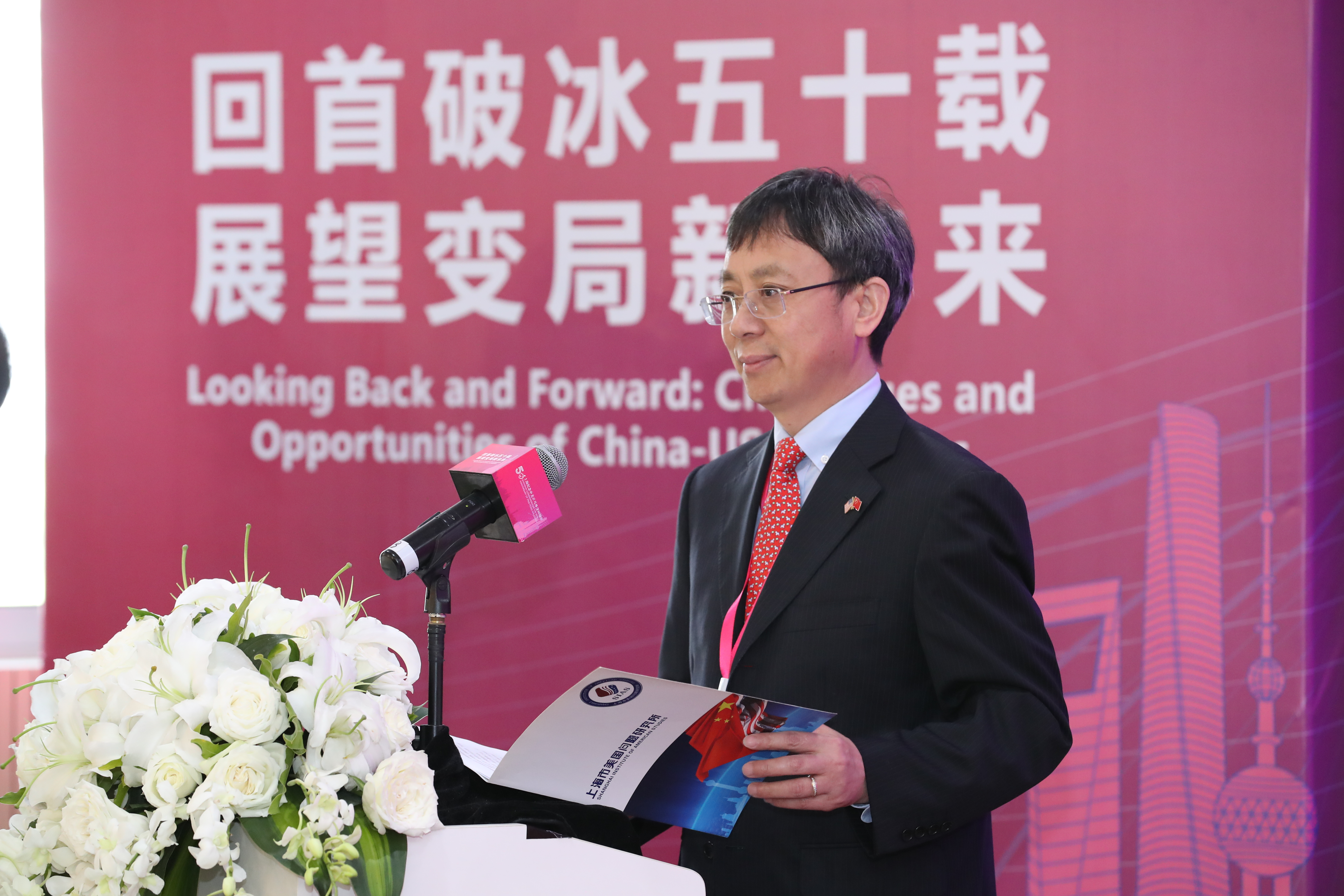
Wu Xinbo, President of SIAS, moderated the meeting
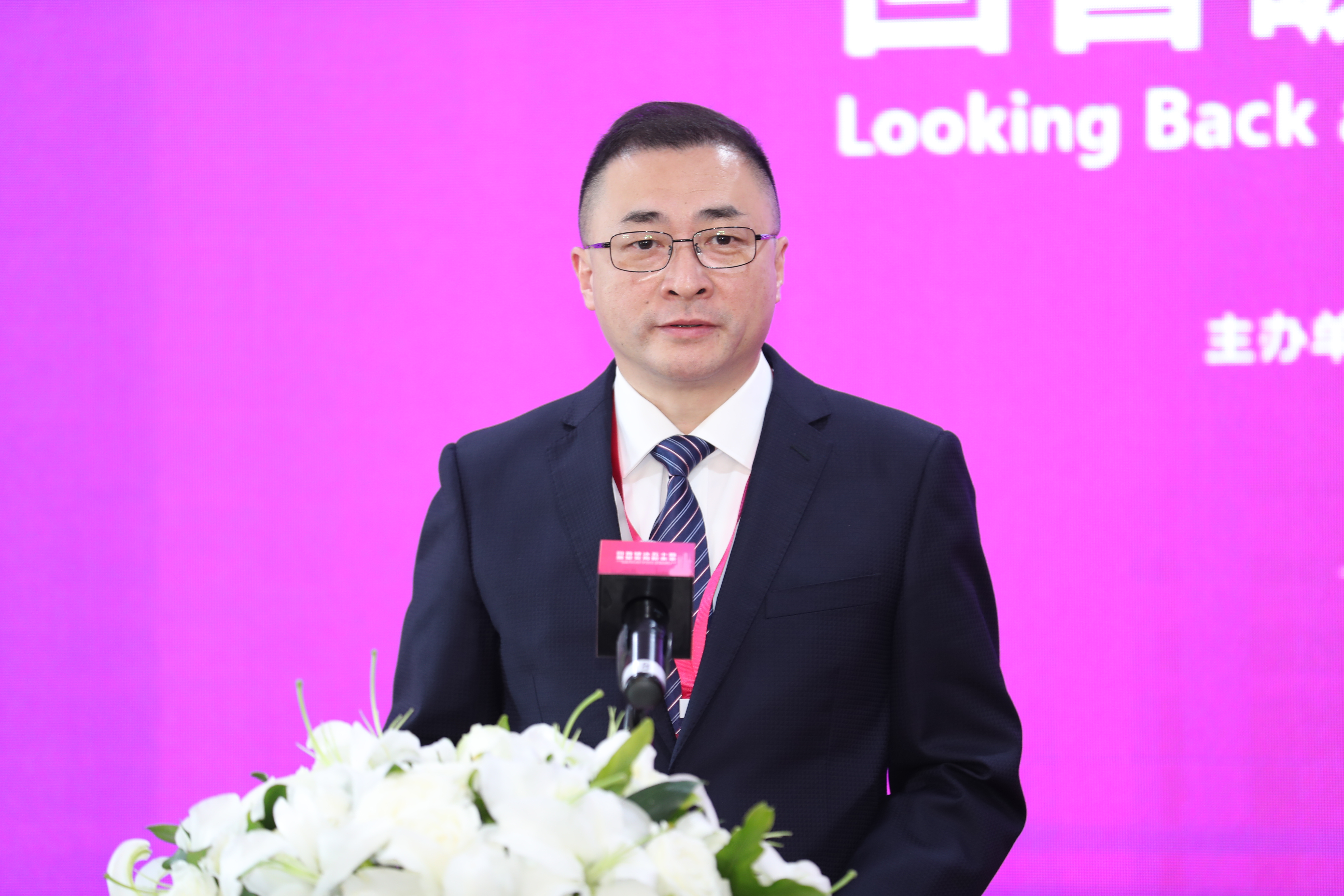
Li Yin, Chancellor of Shanghai University of Sport, made an opening speech at the meeting
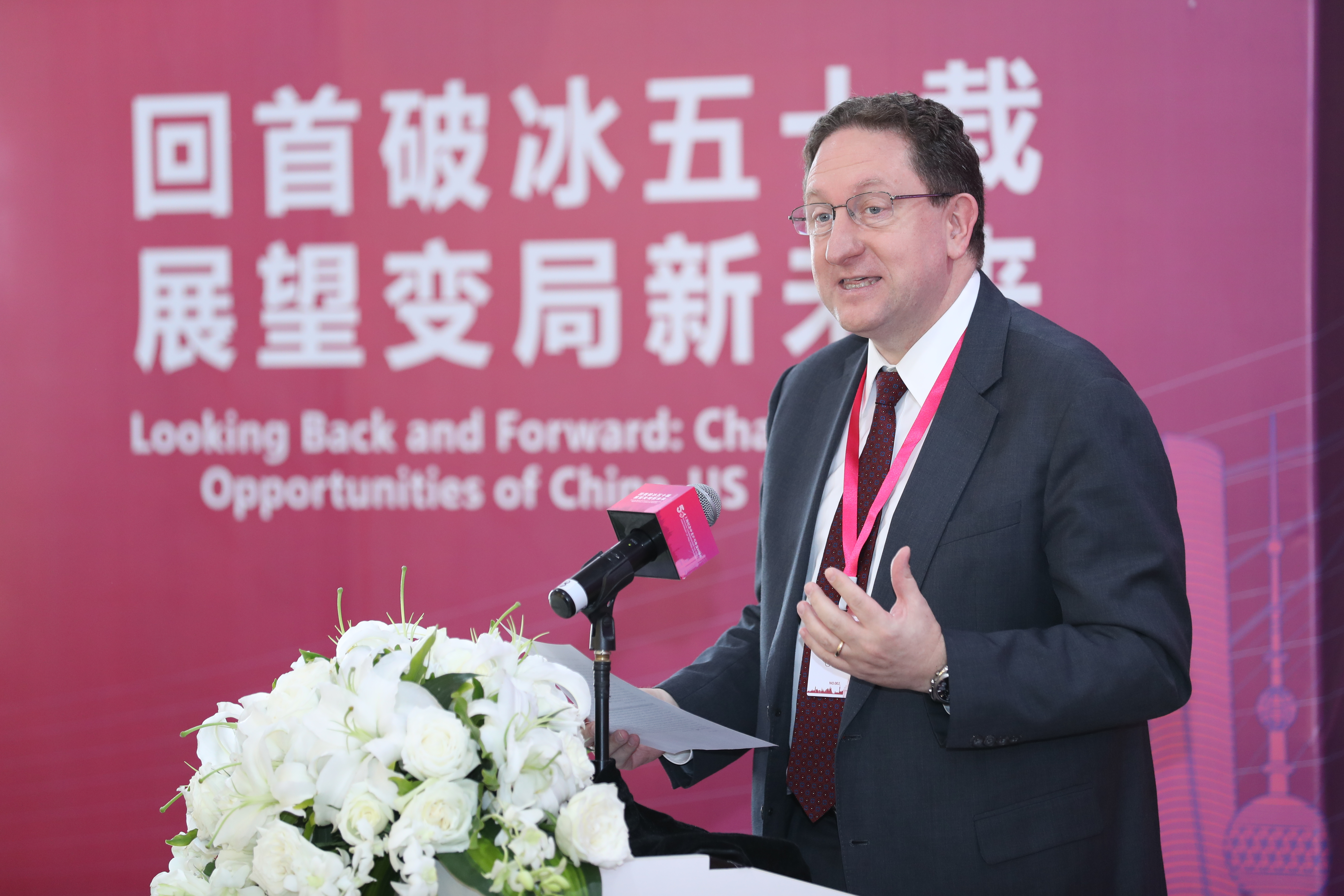
James Heller, US Consul General in Shanghai, made an opening speech at the meeting
As witnesses of Ping Pong diplomacy, Xu Yinsheng, Honorary Life President of International Table Tennis Federation, and Li Furong, Honorary Life President of Asian Table Tennis Union delivered keynote speeches respectively. While looking back on the history of Ping Pong diplomacy, they also highlighted the role sports played in promoting China-US cooperation, hoping that the sportsmanship of "friendship first, competition second" would extend to other aspects of bilateral exchanges.
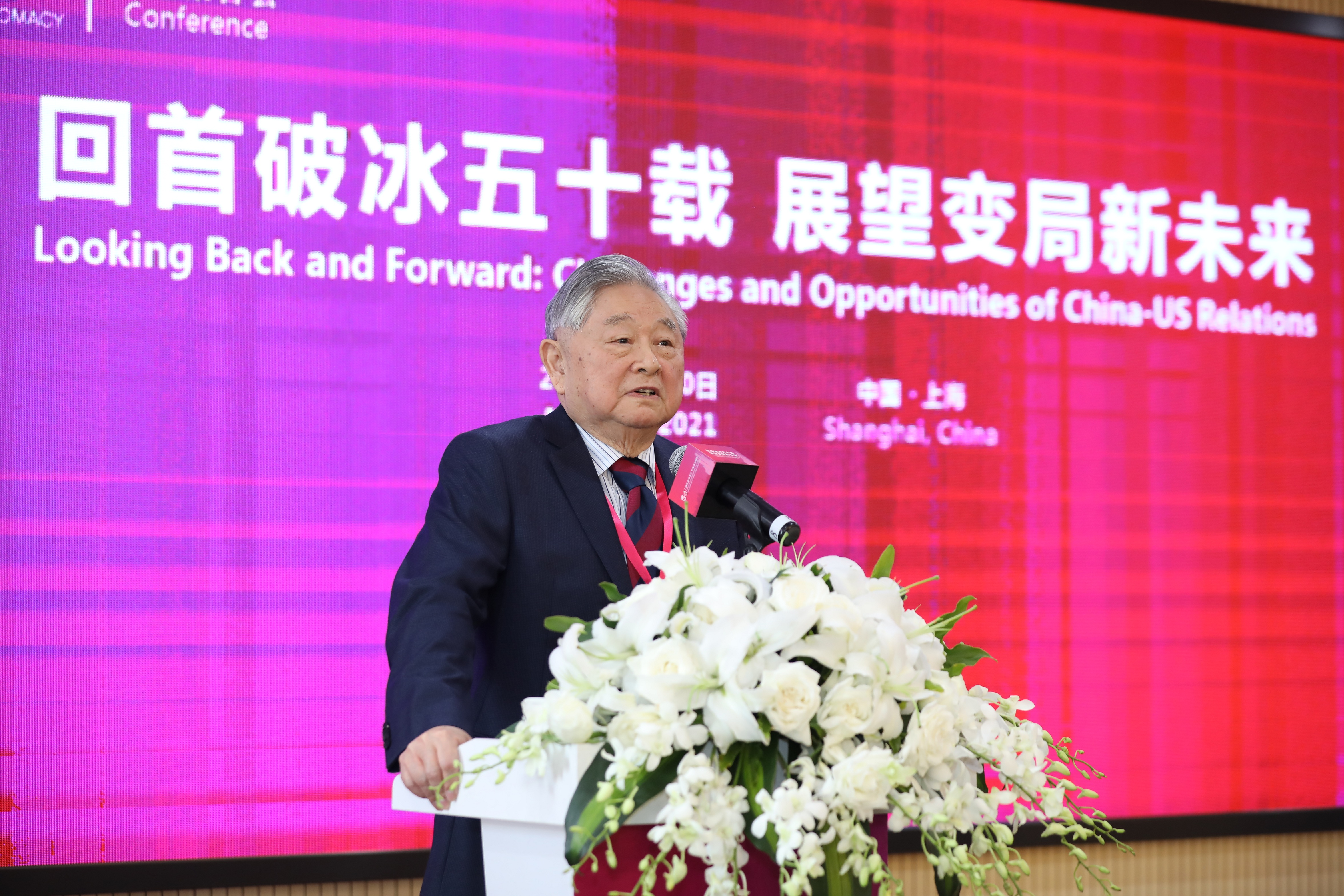
Xu Yinsheng, Honorary Life President of International Table Tennis Federation, delivered a keynote speech

Xu Yinsheng, Honorary Life President of International Table Tennis Federation, delivered a keynote speech
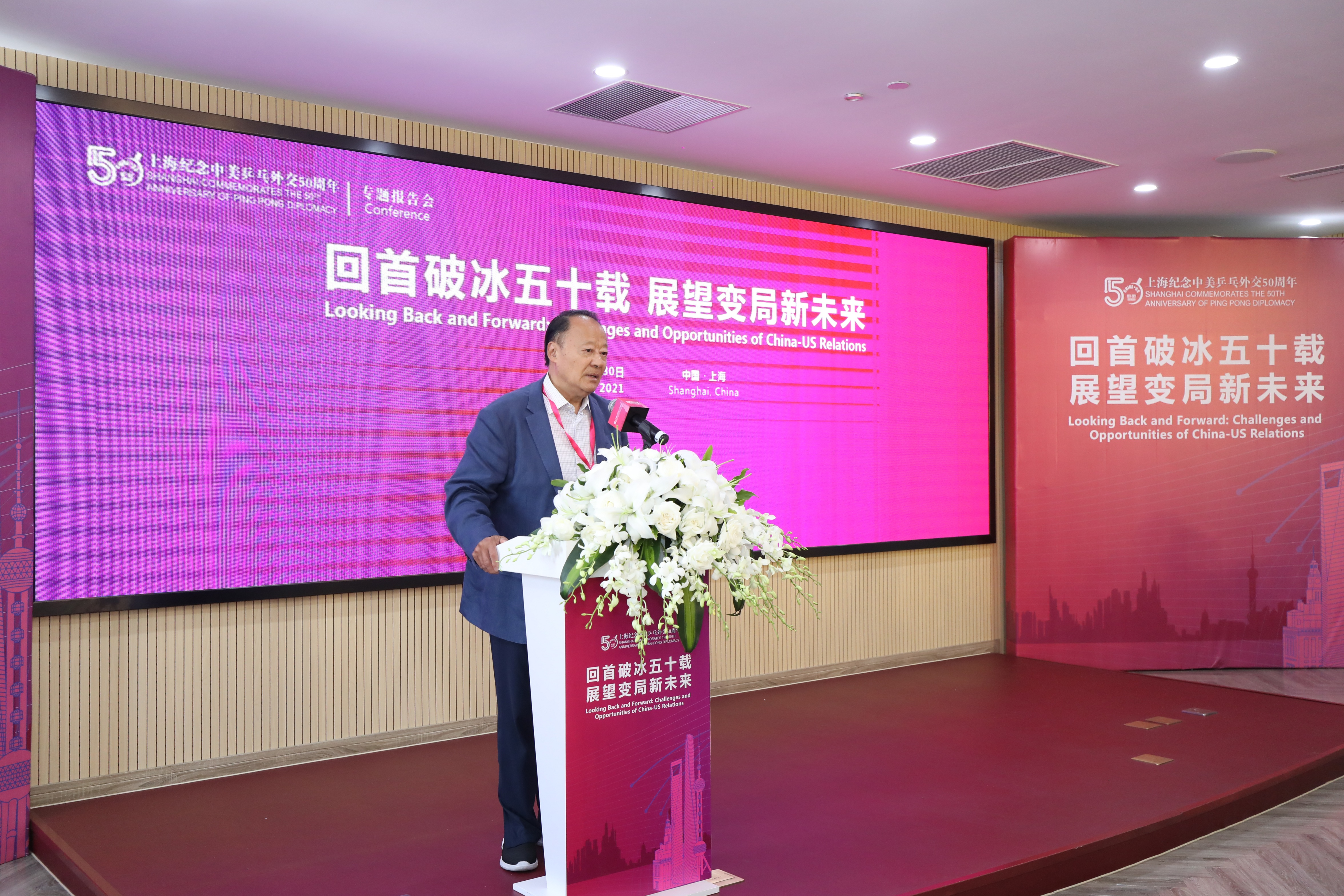
Li Furong, Honorary Life President of Asian Table Tennis Union delivered a keynote speech
Jan Berris, Vice President of National Committee on United States-China Relations, participated in the reception of the visiting Chinese table tennis team in 1972. In a video specially recorded for this meeting, she called on China and the US to maintain non-governmental cultural exchanges. She said: "The more people were involved, the broader the scope of the relationship and interests, the larger array of constituencies you would have who would want to keep a stake in the relationship and made it successful."

Sha Hailin, President of Shanghai People’s Association for Friendship with Foreign Countries, presented letters of thanks to Xu Yinsheng, Li Furong and other witnesses of Ping Pong diplomacy
Fifty years ago, the friendly exchanges between Chinese and American table tennis teams opened the door of reconnection for the two countries. Fifty years later, bilateral relations once again stand at the crossroads. Looking back on the course of bilateral exchanges over the past half-century, experts at the meeting thought it is the time to review and reflect.
Yang Jiemian, Chairman of the Academic Affairs Council of Shanghai Institutes for International Studies (SIIS), Jeffrey Lehman, Vice Chancellor of New York University Shanghai, and Jonathan Woetzel, Senior Partner of McKinsey & Company, discussed “How can China and the US achieve new breakthrough in relations via people-to-people exchanges?” They all agreed that there is still huge potential for bilateral cooperation in many fields, such as people-to-people and cultural exchanges, education, economy and trade, climate change, public health, etc.

Jeffrey Lehman, Yang Jiemian, and Jonathan Woetzel joined a panel discussion. Michael Rosenthal, Founder of Investment & Economic Enterprises Business Community, moderated the discussion
Many academics and experts argued that the success of Ping Pong diplomacy is inspiring for current China-US relations: the diplomatic wisdom and courage of both countries’ leaders in the 1970s still worth learning. In terms of bilateral relations, we must jump out of traditional diplomatic thinking, listen to the calls for friendly cooperation from the people, and let non-governmental forces play their role. Despite recent setbacks in China-US relations, experts agreed that the tradition of "friendship first, competition second" should be brought into play to help nurture a good cooperation atmosphere of "cooperation first, competition second". Participants believed that outside of Washington the basis of public opinion favorable for bilateral relations still exists, and that a healthy and stable China-US relations align with the expectation of the people on both sides.
The end of April marked President Biden's first 100 days in office. The new US administration is still reviewing, adjusting and reshaping its China policy. As Biden’s diplomatic strategy is yet to take shape, uncertainty continues to cloud the outlook of China-US relations. On the seminar held in the afternoon of the same day, participants discussed “How can China and the US overcome current diplomatic challenges and create a strategic road map for collaboration?” “How can Shanghai set an example in promoting China-US cooperation?” and other topics, and shared their ideas for maintaining and improving bilateral relations.
